Decomposition
Decomposition is the process by which organic matter is broken down into simpler substances such as carbon dioxide, water, and inorganic compounds by the action of decomposers such as bacteria, fungi, and detritivores.
Factors Affecting Decomposition
- Temperature: Decomposition rates increase with higher temperatures as it provides an optimal environment for decomposers to thrive.
- Moisture: Adequate moisture is necessary for decomposers to carry out their activities effectively.
- Oxygen: Aerobic decomposition requires oxygen, while anaerobic decomposition occurs in the absence of oxygen.
- Nutrient Availability: Decomposers require essential nutrients such as nitrogen and phosphorus for their metabolic activities.
- pH: The pH of the environment can affect the activity of decomposers, with most functioning optimally within a neutral pH range.
Importance of Decomposition
Decomposition is vital for nutrient recycling in ecosystems. It breaks down complex organic matter into simpler forms, releasing nutrients that can be utilized by plants for growth. Additionally, decomposition helps in the formation of humus, which improves soil structure and fertility.
Study Guide
When studying decomposition, make sure to understand the different types of decomposers, their role in the process, and the factors that influence decomposition rates. Familiarize yourself with the nutrient cycling and energy flow associated with decomposition in ecosystems. Additionally, explore the significance of decomposition in maintaining ecological balance and soil health.
Consider conducting experiments or field studies to observe the effects of various environmental factors on decomposition rates. This hands-on approach can deepen your understanding of the topic and reinforce key concepts.
Finally, utilize diagrams and illustrations to visualize the decomposition process and its ecological implications. Creating concept maps or flowcharts can help organize the interconnected components of decomposition and aid in comprehensive learning.
.◂Biology Worksheets and Study Guides High School. Ecology I
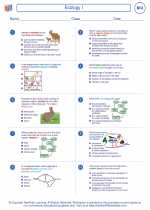
 Worksheet/Answer key
Worksheet/Answer key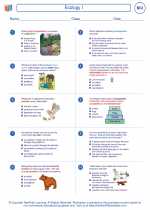
 Worksheet/Answer key
Worksheet/Answer key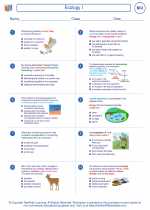
 Worksheet/Answer key
Worksheet/Answer key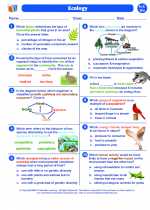
 Vocabulary/Answer key
Vocabulary/Answer key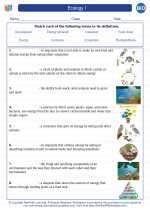
 Vocabulary/Answer key
Vocabulary/Answer key
